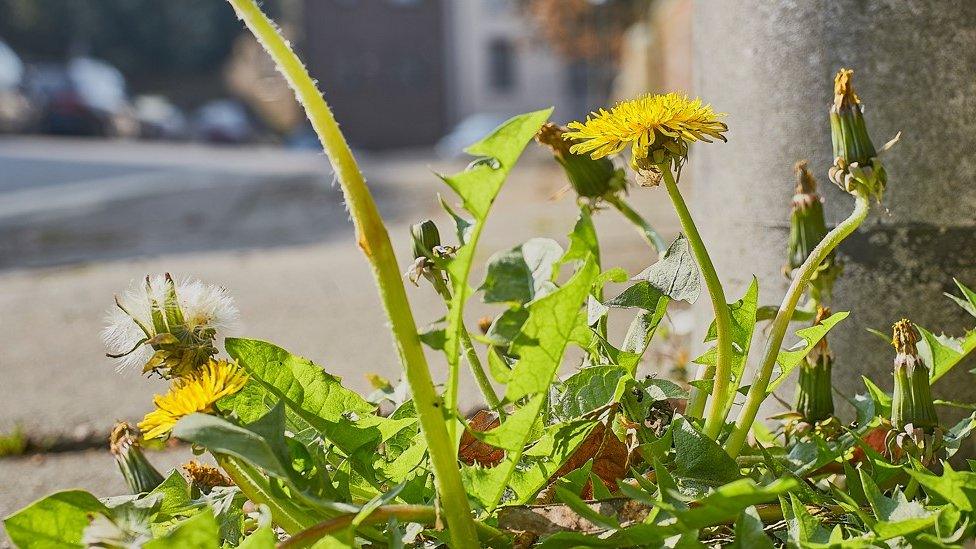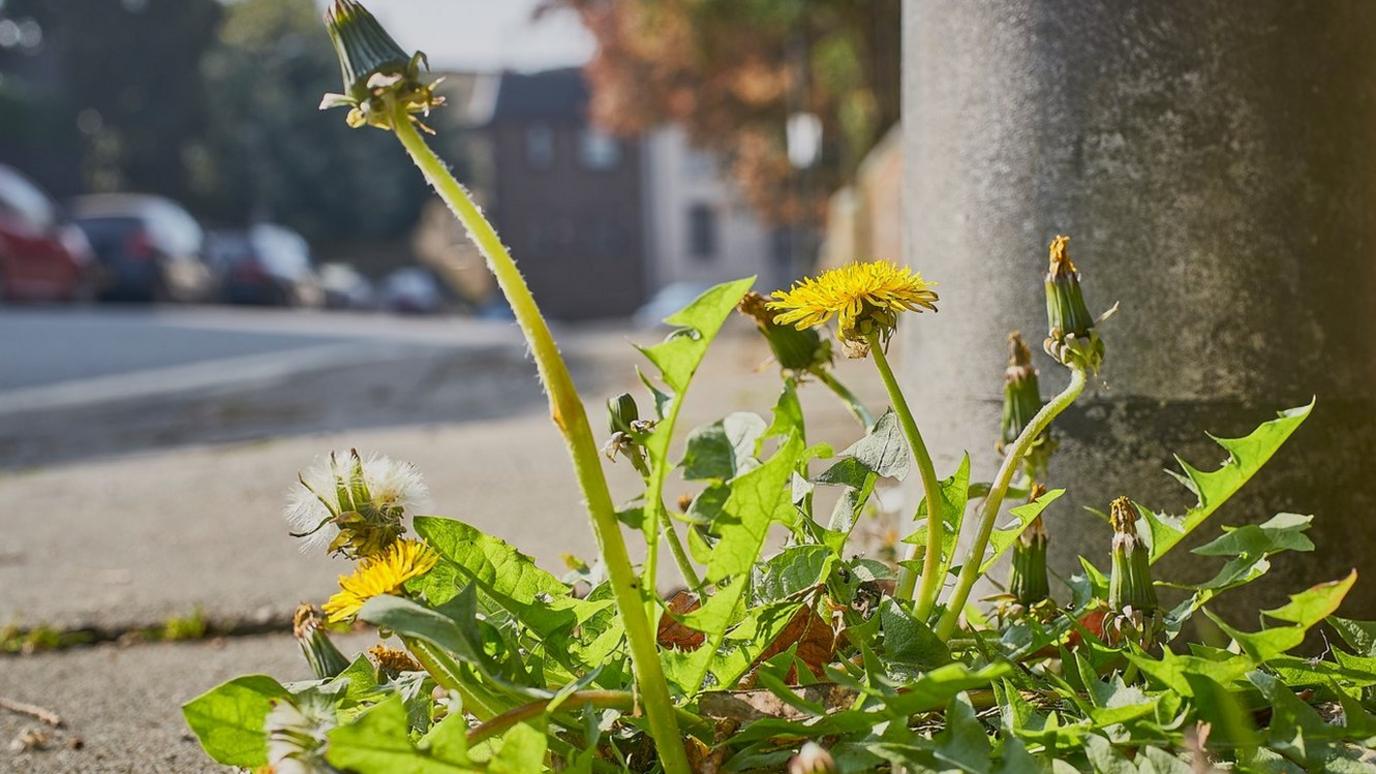Brighton & Hove City Council set to reintroduce weedkiller
- Published

A councillor said the controlled-droplet application would be "significantly" more expensive than traditional application
A council which banned a type of weedkiller five years ago will reintroduce its use.
Brighton & Hove City Council banned the use of glyphosate in 2019 after it was linked to cancer and a decline in bee populations.
But on Tuesday, councillors agreed to support its use to manage weeds.
The council said a controlled-droplet application would reduce "adverse impacts".
Tim Rowkins, chair of the City Environment, South Downs and the Sea Committee, told a council meeting that weeds in the city were "so well established that they've begun damaging roads and pavements.
"Parts of the city are completely wild and many of our residents - wheelchair users, parents and carers with buggies, those with visual or mobility impairments - simply can't travel the distance of their own street safely."
He added that while the council had conducted an "exhaustive assessment" of alternatives to reintroducing the weedkiller, none were "effective or viable".
Councillors agreed to amend the current policy to allow the use of glyphosate, which would be applied via a controlled-droplet, to manage weeds on hard surfaces.
The method would see oil mixed with glyphosate so it sticks to the targeted plant and reduces "drift" onto other wildlife.
Additional cost
A council report said the "adverse impacts" of the herbicide were lessened via controlled-droplet application.
Under the move, the council will continue not to use the weedkiller in the city's parks and open spaces.
The report said the controlled-droplet application would cost the council an extra £266,000 per year and £35,000 in equipment.
The move is subject to agreement at a council budget meeting on 22 Feburary.
Mr Rowkins said: "We've gone above and beyond to find a way forward that substantially reduces any health and safety risk and potential impacts on biodiversity."
The Pesticide Action Network had previously criticised the proposal. Josie Cohen, from the charity, said: "It is entirely possible to keep our city looking beautiful while at the same time prioritising human health and the environment."

Follow BBC South East on Facebook, external, on X, external, and on Instagram, external. Send your story ideas to southeasttoday@bbc.co.uk, external.
Related topics
- Published16 January 2024

- Published11 December 2023